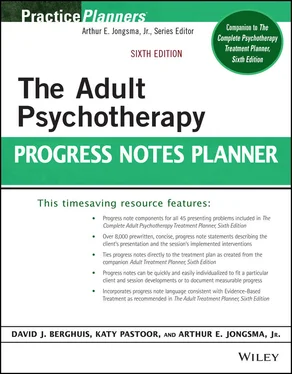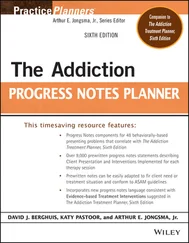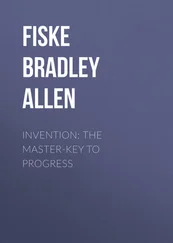1 ...7 8 9 11 12 13 ...36 12 Sexual Promiscuity (10)The client reported a history of repeated sexual encounters with partners with whom there is little or no emotional attachment.The client's described sexual behaviors are focused on self-gratification only and reflect no interest in the needs or welfare of the partner.The client acknowledged that his/her/their sexual behavior has no basis in respect or expression of commitment to a long-term relationship.The client reported that he/she/they would like to develop a relationship in which sexual intimacy was a reflection of commitment and caring, rather than merely sexual release.
13 Impulsivity (11)The client has a pattern of impulsive behavior, which is demonstrated in his/her/their frequent geographical moves, traveling with little or no goals, and quitting one job after another.The client's impulsivity has resulted in a life of instability and negative consequences for him/her/them and others.The client has acknowledged that his/her/their life of impulsive reactivity has had many negative consequences, and he/she/they have committed to an effort of control over these impulses.The client has shown progress in controlling impulsive reactivity and now considers consequences of actions before quickly reacting.
14 Employment Conflicts (12)The client reported that authority conflicts have erupted in the employment situation.The client described coworker conflicts where he/she/they do not trust others and do not work as part of a team.The client's work history is very unstable, in that he/she/they have held many different jobs with little or no longevity to them.The client acknowledged a need to develop a tolerance for frustration within the work situation and accept authority that will give him/her/them direction within that setting.The client has maintained employment for the longest period of time in his/her/their life.
15 Irresponsible Parenting (13)As the client began to acknowledge a history of irresponsible parenting, he/she/they also tried to minimize the consequences and project blame for these actions onto others.The client described a feeling of love and devotion to his/her/their child(ren), but, behaviorally, there is little evidence of it.The client has not paid child support on a regular basis or shown consistent interest in the welfare of his/her/their child(ren).The client acknowledged some guilt over his/her/their lack of responsible parenting and has committed to behaving in a more responsible and consistent manner to support his/her/their child(ren).The client has initiated responsible behavior toward his/her/their child(ren) in terms of financial support and consistent contact.
INTERVENTIONS IMPLEMENTED
1 Establish Rapport (1) 2 Caring was conveyed to the client through support, warmth and empathy.The client was provided with nonjudgmental support and a level of trust was developed.The client was urged to feel safe in expressing his/her antisocial behavior symptoms.The client began to express feelings more freely as rapport and trust level have increased.The client has continued to experience difficulty being open and direct about his/her expression of painful feelings; he/she was encouraged to use the safe haven of therapy to express these difficult issues.
2 Focus on Strengthening Therapeutic Relationship (2)The relationship with client was strengthened through the implementation of a collaborative approach, agreement on goals, demonstration of empathy, verbalization of positive regard, and collection of client feedback.The client reacted positively to the relationship-strengthening measures taken.The client verbalized feeling supported and understood during therapy sessions.Despite attempts to strengthen the therapeutic relationship, the client reports feeling distant and misunderstood.The client has indicated that sessions are not helpful and will be terminating therapy.
3 Take History/Confront Denial (3)The client's history of illegal activities was collected.The client was assigned the homework exercise “Crooked Thinking Leads to Crooked Behavior” from the Adult Psychotherapy Homework Planner (Jongsma).The client was assigned the homework exercise “Accept Responsibility for Illegal Behavior” from the Adult Psychotherapy Homework Planner (Jongsma).The client was confronted consistently on his/her/their attempts to utilize minimizations, denial, or projection of the blame onto others for which he/she/they were responsible.The client's history was explored for instances of unkind, insensitive behavior that trampled on the feelings and rights of others.
4 List Antisocial Consequences (4)The client was asked to list the negative consequences that have accrued to him/her/them due to his/her/their antisocial behavior.The client was assigned “How I Have Hurt Others” from the Adult Psychotherapy Homework Planner (Jongsma).The client was confronted with the fact that his/her/their antisocial behavior results in others losing respect for him/her/them, loss of freedom for him/her/them due to legal consequences, and loss of self-respect.The client was consistently reminded of the pain that others suffer as a result of his/her/their antisocial behavior.The client was asked to list others who have been negatively impacted by his/her/their antisocial behavior and the specific pain that they have suffered.The client was confronted with the fear, disappointment, loss of trust, and loss of respect that result in others as a consequence of his/her/their lack of sensitivity and self-centered behavior.The client was provided with positive feedback as he/she/they were able to accept the consequences of his/her/their antisocial behavior.
5 Arrange Substance Abuse Evaluation (5)The client's use of alcohol and other mood-altering substances was assessed.The client was assessed to have a pattern of mild substance use.The client was assessed to have a pattern of moderate substance use.The client was assessed to have a pattern of severe substance use.The client was referred for a substance use treatment.The client was found to not have any substance use concerns.
6 Assess Level of Insight (6)The client's level of insight toward the presenting problems was assessed.The client was assessed in regard to the syntonic versus dystonic nature of his/her/their insight about the presenting problems.The client was noted to demonstrate good insight into the problematic nature of the behavior and symptoms.The client was noted to be in agreement with others' concerns and is motivated to work on change.The client was noted to be ambivalent regarding the problems described and is reluctant to address the issues as a concern.The client was noted to be resistant regarding acknowledgment of the problem areas, is not concerned about them, and has no motivation to make changes.
7 Assess for Correlated Disorders (7)The client was assessed for evidence of research-based correlated disorders.The client was assessed in regard to his/her/their level of vulnerability to suicide.The client was identified as having a comorbid disorder, and treatment was adjusted to account for these concerns.The client has been assessed for any correlated disorders, but none were found.
8 Assess for Culturally Based Confounding Issues (8)The client was assessed for age-related issues that could help to better understand his/her/their clinical presentation.The client was assessed for gender-related issues that could help to better understand his/her/their clinical presentation.The client was assessed for cultural syndromes, cultural idioms of distress, or culturally based perceived causes that could help to better understand his/her/their clinical presentation.Alternative factors have been identified as contributing to the client's currently defined “problem behavior,” and these were taken into account in regard to his/her/their treatment.Culturally based factors that could help to account for the client's currently defined “problem behavior” were investigated, but no significant factors were identified.
Читать дальше












